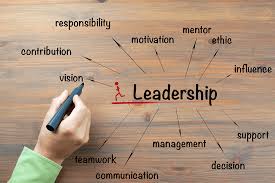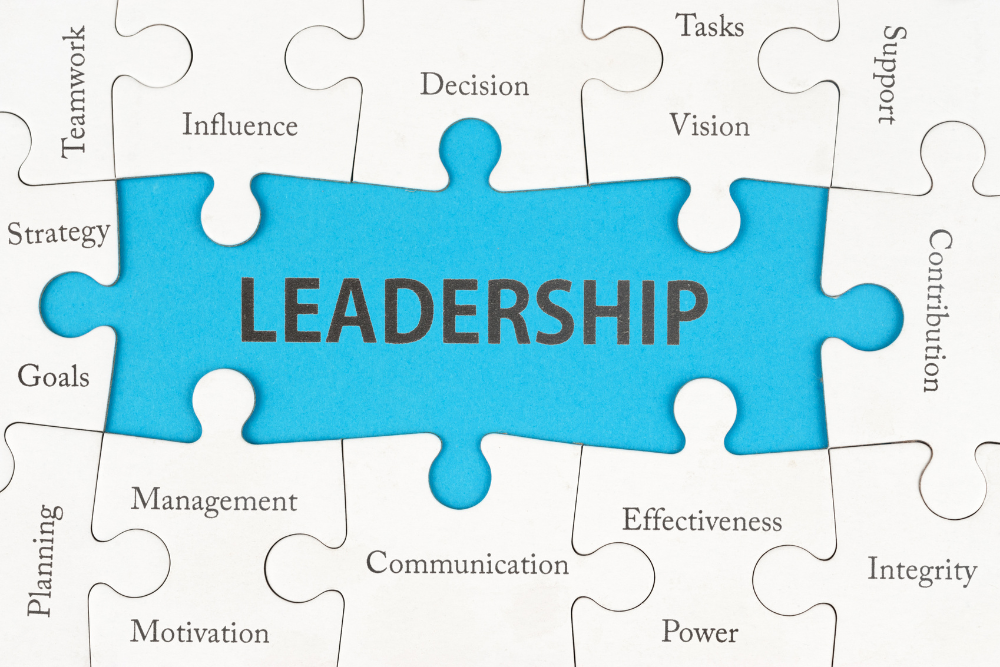Introduction: The Importance of Leadership Skills in the Workplace
Leadership skills are fundamental to achieving success in any professional environment. A strong leader has the ability to inspire, motivate, and guide a team toward achieving organizational goals. But what exactly makes a good leader? Leadership is not just about having a position of authority; it’s about effectively influencing and guiding others to perform at their best.
In today’s competitive and rapidly changing business world, developing leadership skills is more critical than ever. Whether you’re an entry-level employee aiming for career advancement or a senior executive looking to refine your abilities, leadership skills are essential for personal and organizational growth.
At Al Mithaq Institute, we believe in the transformative power of education. Through our comprehensive courses in management, business leadership, and legal frameworks, we empower individuals to harness their leadership potential. Our programs are designed to cater to the dynamic needs of both online and offline learners, providing a flexible approach to professional development.
Why Leadership Skills Matter in the Workplace
Building Trust and Credibility
Leadership is fundamentally about building trust. As a leader, your credibility will be tested in everyday actions, decisions, and interactions with your team. The ability to make decisions that are fair and balanced, communicate clearly, and listen to the concerns of your team members can make a huge difference in how trusted you are as a leader.
Without trust, it becomes difficult to motivate others, foster a positive work culture, or build effective collaboration. Teams perform best when they feel confident in their leadership and believe in the leader’s abilities. Credibility is built over time and is earned through consistent actions, integrity, and a demonstrated commitment to the success of others.
At Al Mithaq Institute, we recognize the importance of leadership in building trust and fostering healthy workplace dynamics. That’s why our programs incorporate leadership principles that help learners develop the attributes necessary for building trust within teams.
Enhancing Communication
Effective communication is a hallmark of successful leadership. As a leader, you are expected to communicate clearly, persuasively, and with transparency. You need to explain complex ideas, offer feedback, and provide clear instructions in a way that everyone can understand. More importantly, communication is not just about speaking—it’s about listening actively.
Leaders who can articulate their thoughts and listen attentively to the feedback of others create an open and communicative environment. This leads to fewer misunderstandings, better collaboration, and greater overall team success. Good communication ensures that team members are on the same page, motivated, and aligned with organizational goals.
Boosting Team Morale and Productivity
Effective leadership has a direct impact on team morale and productivity. As a leader, you need to be able to motivate your team, recognize achievements, and provide encouragement in difficult times. The role of leadership is not only about managing the workflow but about uplifting others, helping them navigate challenges, and providing them with opportunities for growth.
Motivated teams are more likely to produce better work, exhibit high levels of creativity, and contribute positively to organizational objectives. Leaders who consistently show support and appreciation for their team members foster loyalty and job satisfaction.
Enhancing Innovation and Change Management
In today’s ever-changing business landscape, innovation is a critical aspect of staying ahead. Leaders play a crucial role in fostering innovation within teams. By providing a safe space for creativity, encouraging out-of-the-box thinking, and promoting an adaptive mindset, leaders can drive innovation.
Furthermore, change management is another important area where leadership skills are tested. Leaders must guide their teams through periods of uncertainty and change, whether it’s a company restructuring, a new business strategy, or the adoption of new technologies.
Inspiring Long-Term Success
Leadership is the guiding force behind any long-term strategy. Effective leaders are able to set long-term goals, prioritize actions, and keep their teams focused on sustainable growth. Through strategic planning, leaders help organizations move forward and achieve meaningful success in the future. They play a critical role in translating vision into actionable objectives that move the business toward its overall goals.
Key Leadership Skills Every Workplace Needs
1. Communication and Interpersonal Skills
Effective leaders excel at communication—both verbal and non-verbal. They are clear in expressing expectations, project updates, and goals. Furthermore, they listen attentively to the needs of their team, offering feedback and suggestions in a constructive manner.
Interpersonal skills such as empathy, patience, and emotional intelligence (EQ) are also essential for strong leadership. Great leaders understand their team’s needs, motivations, and challenges and address them effectively. They build genuine connections with team members and foster a culture of respect and collaboration.
2. Decision-Making and Problem-Solving
One of the core responsibilities of a leader is making decisions. Effective decision-making requires analyzing a situation, considering various alternatives, and evaluating the potential outcomes. Leaders who are able to make sound, timely decisions inspire confidence and reduce the uncertainty in their teams.
Leaders must also possess strong problem-solving abilities. When faced with challenges, effective leaders can assess the situation, identify root causes, and develop innovative solutions. They can troubleshoot complex problems and guide their teams toward resolutions.
3. Emotional Intelligence (EQ)
Emotional intelligence is often considered one of the most important traits for leadership. It involves the ability to recognize, understand, and manage your own emotions, as well as the emotions of others. Leaders with high EQ can navigate stressful situations with calmness, inspire team members to perform at their best, and foster a positive work culture.
Leaders with high EQ also build stronger relationships with their teams, creating an atmosphere of trust, empathy, and mutual respect. Understanding the emotions of team members allows leaders to offer personalized support and provide a more tailored approach to leadership.
4. Strategic Thinking and Vision
Effective leaders not only focus on day-to-day operations, but they also keep an eye on the long-term vision of the organization. Strategic thinking allows leaders to navigate challenges, recognize opportunities, and position their teams for success.
Leaders must have the foresight to predict changes in the market, assess risks, and develop plans that ensure the long-term growth and sustainability of the organization. They are visionaries who inspire others to work towards a shared goal and motivate teams to take action.
5. Conflict Resolution
Conflict is inevitable in any workplace. However, how a leader handles conflict determines the outcome. Great leaders remain calm and impartial when resolving disputes, seeking solutions that address the needs of all parties involved. By managing conflict effectively, leaders can prevent the escalation of tensions and maintain a positive work environment.
Leaders who have strong conflict-resolution skills can mediate disputes, identify common ground, and foster collaboration. Their approach helps maintain harmony within teams, ensuring that disagreements do not negatively impact performance or morale.
How to Develop Leadership Skills: Key Strategies
1. Invest in Formal Leadership Training
One of the most effective ways to enhance your leadership skills is to invest in formal education and training programs. Al Mithaq Institute offers a range of diplomas in leadership, business management, legal training, and emotional intelligence. These programs are designed to help individuals develop the skills necessary for effective leadership, from communication to conflict resolution.
2. Seek Mentorship and Coaching
Mentorship is an essential aspect of leadership development. A mentor can offer advice, share their experiences, and provide constructive feedback on your leadership style. Seeking mentorship helps accelerate your leadership journey by providing you with insights that you might not otherwise gain.
3. Practice Active Listening
Active listening is an essential leadership skill. Great leaders listen more than they speak, understanding that communication is a two-way process. By practicing active listening, you’ll be better able to understand the needs and concerns of your team, which will allow you to make informed decisions and lead more effectively.
4. Gain Practical Experience
While theory and training are important, practical experience is key to refining your leadership abilities. Take on new responsibilities, volunteer for leadership roles in projects, or seek opportunities to lead within your organization. The more you practice leadership, the more confident you will become in your ability to lead.
5. Foster Self-Awareness
Self-awareness is a critical component of leadership. Leaders who understand their strengths and areas for improvement can focus on continuous development and adjust their leadership style as needed. Regular self-reflection and seeking feedback from others are key practices for enhancing self-awareness.
How Al Mithaq Institute Can Help You Develop Leadership Skills
Comprehensive Educational Programs
Al Mithaq Institute offers a diverse range of educational programs designed to help individuals develop the leadership skills necessary for success. From diplomas in business management to advanced courses in leadership training, we have something for every aspiring leader.
Our diplomas are available both online and offline, providing the flexibility you need to learn at your own pace. Whether you’re interested in management, legal frameworks, or social skills development, our programs are tailored to meet your unique needs and career aspirations.
Expert Faculty
Our faculty members bring years of practical experience to the classroom. With backgrounds in law, business management, education, and more, our instructors offer invaluable insights into leadership, problem-solving, and organizational behavior. At Al Mithaq Institute, you’ll learn from professionals who understand the challenges and opportunities that come with leadership roles.
Flexible Learning Options
We understand that time is a precious resource. That’s why we offer flexible learning options that allow you to study at your own pace. Whether you prefer to learn online or attend in-person classes, our programs are designed to fit your schedule and lifestyle.
International Recognition
Al Mithaq Institute’s diplomas are accredited by the Knowledge and Human Development Authority (KHDA) of Dubai and our partner institution, Leeds International College in the UK. This ensures that our programs are globally recognized and provide you with the credentials you need to pursue leadership roles anywhere in the world.
Conclusion: Take the Next Step Toward Leadership Success
Developing leadership skills is an ongoing journey. The more you invest in your personal and professional growth, the more effective and influential you’ll become as a leader. Whether you’re looking to enhance your communication skills, gain experience in decision-making, or learn how to manage teams more effectively, Al Mithaq Institute’s programs provide the tools and knowledge you need to excel.
By enrolling in our leadership and management courses, you’ll gain the expertise necessary to succeed in today’s dynamic and competitive workforce. Start your journey toward leadership excellence today by visiting Al Mithaq and enrolling in one of our comprehensive programs.








